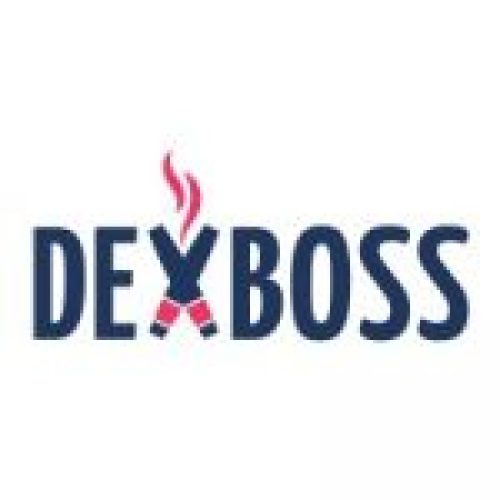Blockchain technology is disrupting the real estate industry in major ways. From fractional property investments to automated transactions, blockchain-based platforms are opening real estate investing to a wider pool of investors.
In this comprehensive guide, we’ll explain everything you need to know about blockchain real estate investing, including:
- How blockchain technology is impacting real estate
- Benefits of investing in tokenized real estate assets
- Step-by-step guide to making your first blockchain property investment
- Overview of the top blockchain real estate investment platforms
- Key factors to consider including fees, regulation, security, and more
Whether you’re an experienced real estate investor or completely new to the blockchain world, this guide will equip you with the knowledge to navigate this emerging new asset class. Let’s dive in!
How Blockchain Technology is Revolutionizing Real Estate
Blockchain real estate investing represents a fusion between digital blockchain assets and physical real world properties. But how exactly is blockchain technology changing and benefiting real estate?
Fractional Ownership
One of the biggest values of blockchain for real estate is enabling fractional ownership of properties. Tokens represent digital ownership shares that can be purchased individually or in bundles. This opens up investment in high-value properties to smaller-scale investors rather than just institutional players. Now anyone can gain exposure to prime commercial or residential real estate from just a few hundred dollars.
24/7 Liquidity
Investing in traditional real estate like REITS or rental properties is relatively illiquid – it can take months to cash out your position. In contrast, blockchain security tokens representing property ownership can be traded 24/7 on secondary exchanges just like cryptocurrencies. This brings unparalleled liquidity to real estate investment.
Automated Compliance
Smart contracts enable automated compliance and governance of blockchain real estate investments. Tasks like collecting and distributing rental income or voting on property management decisions can be handled programmatically to reduce manual work and errors. Property transactions and regulatory compliance are also streamlined through smart contract automation.
Enhanced Transparency
Storing property transactions and ownership data on public blockchains enables greater transparency compared to opaque closed databases used today. Having a single source of truth improves accountability, reporting, and auditing.
Elimination of Middlemen
Disintermediating gatekeeping middlemen in real estate transactions reduces fees and friction. For example, deals can close faster by automating escrow and title processes onto blockchain rails rather than relying on bureaucratic intermediary players.
Accessibility
Investing in blockchain real estate opens up asset exposure to global retail investors rather than just accredited or institutional players. Geographic restrictions that limited investment in prime property markets are removed through tokenization. The operational complexities of managing remote physical real estate are abstracted away.
These benefits make real estate investing more efficient while expanding access and liquidity. Next let’s look at the process of actually investing in blockchain real estate assets.
How To Invest in Blockchain Real Estate in 6 Steps
Investing in tokenized real estate properties through blockchain platforms involves some nuances compared to buying traditional stocks or cryptocurrencies. Here is a step-by-step guide:
1. Choose a Real Estate Investment Platform
First, you’ll need to select which blockchain real estate platform to invest through. We’ll profile some of the top options later in this guide. Key factors to evaluate include types of available properties, jurisdictions served, onboarding/KYC requirements, fees, secondary trading options, and security.
2. Create an Account and Get Verified
Once you pick a platform, you’ll need to create an account and complete identity verification steps if required to comply with anti-money laundering (AML) and know your customer (KYC) regulations. Provide information like a government ID, proof of address, tax details, and proof of funds origins to get approved.
3. Fund Your Account
Typically you’ll need to fund your account by transferring in a specified payment cryptocurrency like USDC or ETH. Follow the platform’s instructions to deposit funds from an external crypto wallet or exchange account into your new platform wallet.
4. Browse Investable Property Listings
Now you can browse available property investments on the platform marketplace. Listings will provide details on the property type (residential, commercial, retail, etc), location, token price, expected returns, risk level, and other parameters to inform your decision.
5. Purchase Property Tokens
Once you’ve identified a property you want to invest in, follow the steps to purchase governance and/or equity tokens connected to the property. This will involve signing transaction approvals through your wallet. Different token bundles offer various ownership rights and returns.
6. Manage or Sell Tokens
After purchasing property tokens, you can choose to:
- Hold tokens long term to earn rental yields and benefit from property appreciation over time. Many platforms distribute rent shares automatically to token holders’ wallets.
- Sell tokens on secondary exchanges if you want to cash out – this provides unmatched liquidity compared to selling a whole physical property.
- Participate in property governance through votes dictated by your token holdings.
And that’s the basic process for investing in fractionalized blockchain real estate assets! Now let’s look at some top platforms facilitating these investments.
Top 7 Blockchain Real Estate Investment Platforms
Dozens of blockchain real estate platforms now exist spanning property markets across the globe. Here are 7 of the most popular options:
1. RealT
RealT focuses on tokenizing residential real estate like single family rentals to open up investment opportunities for retail buyers. It has facilitated over $100 million in property tokenizations thus far. RealT offers a straightforward investment experience through their site with blockchain asset custody provided by Uniswap.
Locations: USA
Asset Types: Single family homes
Notable Features: Focused on smaller retail investors. Partners with experienced real estate asset managers. Secondary trading on Uniswap.
2. Liquid RE
One of the longest running players in blockchain real estate, Liquid RE has tokenized over $20 million in global commercial properties to date. Their platform caters to accredited and institutional investors.
Locations: Australia, Philippines, Japan, Cyprus
Asset Types: Commercial, healthcare, hospitality, multifamily residential
Notable Features: Caters to accredited investors. Properties jointly owned with corporate partner Propzy. Secondary trading on Uniswap.
3. RealT Platform
RealT Platform focuses on tokenizing rental properties, starting with a portfolio of single family homes in Detroit. It utilizes Tezos blockchain. RealT Platform is operated by RealToken, one of the first platforms to pioneer real estate tokenization.
Locations: USA
Asset Types: Residential rentals
Notable Features: Specializes in Detroit market. Leverages Tezos blockchain. Management by experienced Red Queen real estate operator.
4. Realio
Realio offers an end-to-end solution for tokenizing assets using the Ethereum blockchain. Realio Network provides compliant issuance and lifecycle management of tokenized securities backed by real estate.
Locations: Global
Asset Types: Commercial, funds
Notable Features: End-to-end issuance and management of tokenized assets. Partners with enterprise clients. Secondary trading on Uniswap.
5. Archax
Archax operates a regulated exchange for institutional trading of digital securities, including tokenized real estate. It focuses on bringing blockchain liquidity to institutional investors and brokers. Users can trade real estate tokens approved by top regulators.
Locations: Global
Asset Types: Commercial, residential, hotels, student housing, other asset-backed tokens
Notable Features: Institutional-grade exchange for digital securities. Regulated by UK’s FCA. Partners with multiple token issuance platforms.
6. AssetVault
AssetVault provides an end-to-end solution for tokenizing real estate assets on the Algorand blockchain. Leveraging Algorand provides speed, scalability, and carbon neutral transactions. AssetVault caters to enterprise and institutional clients looking to tokenize properties.
Locations: Global
Asset Types: Residential, commercial, mixed-use, other asset classes
Notable Features: Purpose-built for Algorand blockchain. Institutional-grade security architecture. End-to-end tokenization solution.
7. Lottery.com
Lottery.com leverages blockchain technology to offer fractional ownership in unique high-value assets like iconic real estate properties. Their platform allows retail investors to own shares in properties like Jackie Robinson’s former estate starting from just $25.
Locations: Global
Asset Types: High-value residential, iconic commercial properties
Notable Features: Fractional ownership of iconic properties for smaller retail investors. Secondary trading on Polygon blockchain.
This list just scratches the surface of the expanding universe of blockchain real estate investing platforms out there today. As the technology matures, expect more sophisticated offerings catering to everyone from individuals to investment funds.
Key Factors to Evaluate When Choosing a Platform
When assessing blockchain real estate platforms, here are some of the most important factors to evaluate:
- Property Sourcing and Vetting – What is the track record of sourcing high quality
properties for tokenization? More established platforms develop strong networks for deal flow. Look for partnerships with experienced real estate developers and operators.
- Tokenization Technology – Does the platform utilize robust token designs and blockchain architecture to maximize efficiency, interoperability, transparency, and liquidity? Leading platforms collaborate with specialized tokenization partners.
- Secondary Trading Options – Can the platform’s tokens be traded on external exchanges like Uniswap or through built-in marketplaces to provide liquidity? Wider secondary trading access improves liquidity.
- Security and Custody – How are private keys securing your token holdings safeguarded? Top platforms utilize institutional-grade custody solutions like multi-party computation to minimize risks.
- Fees – What fees does the platform charge for token issuance, transactions, custody, and other services? Lower overall fees increase investor returns.
- Regulation and Compliance – Is the platform registered with financial regulators in the jurisdictions they operate in? Stricter compliance provides accountability and reporting.
- Insurance Coverage – Does the platform insure the physical properties and digital token holdings against potential loss or theft? Insurance protects against risks like property damage.
- Track Record and Reviews – How long has the platform been in business and how much assets has it tokenized? More tenure and volume indicates trust and viability. Checking client reviews also provides useful perspective.
Prioritizing these factors will lead you to more secure, usable, and ultimately profitable blockchain real estate investments.
Common Fees for Blockchain Real Estate Investing
While blockchain real estate platforms have potential to reduce fees through disintermediation, you’ll still encounter some common fees to be aware of:
- Acquisition Fees – A one-time fee for facilitating the purchase of property tokens, typically 1% to 3% of your investment amount. This compensates the platform for sourcing and tokenizing the real estate asset.
- Transaction Fees – Charged when you trade blockchain real estate tokens, generally less than 1% per transaction. This covers the costs of executing the token trades.
- Management Fees – An annual fee paid to the platform or a 3rd party property manager for overseeing administrative tasks, maintenance, taxes, etc. Ranges from 0% to 3% of your stake value.
- Brokerage Fees – Some platforms that operate secondary trading markets charge for facilitating trades between buyers and sellers, similar to crypto exchanges. These trading fees are generally around 0.5%.
- Custody Fees – Annual fees for securely storing your private keys and digital asset holdings, potentially with insurance coverage. Starts around 0.5% for basic custody.
Blockchain platforms aim to keep total fees comparable or lower than traditional real estate investments. Just be sure to factor these expenses into your expected returns.
Current Hurdles for Blockchain Real Estate Growth
Blockchain real estate investing holds immense potential but still faces limitations inhibiting mainstream adoption today:
- Regulatory Uncertainty – Laws around blockchain securities remain unclear across different jurisdictions, creating legal risks and slow compliant offerings. Most platforms only accept accredited investors to reduce regulatory exposure. Rules need to adapt to foster growth.
- Technology Maturation – Blockchain scalability, interoperability, security, and usability need to improve before blockchain real estate can achieve global scale. Seamless experiences for less tech-savvy investors are still lacking.
- Mainstream Understanding – Public knowledge around blockchain assets and real estate tokenization remains very low. Raising awareness and improving blockchain literacy are key prerequisites before the mass market will embrace tokenized real estate.
- Asset Sourcing – Platforms need to build pipelines with developers and brokers to source prime real estate deals suitable for tokenization. Listings remain limited relative to broader real estate markets currently.
- Adoption Incentives – Benefits to incumbent real estate businesses like lower friction and expanded liquidity have not outweighed reluctance to adopt new blockchain technology. Stronger incentives and proven business models are needed to motivate industry change.
Despite these limitations, the technology, ecosystem, and use cases are evolving rapidly. Ongoing blockchain innovation coupled with savvy regulation can pave the way for accelerated adoption in coming years.
The Future of Blockchain Real Estate Investing
Blockchain technology has laid the foundation to revolutionize real estate investing and markets over the next decade. Here are three predictions for the future of blockchain real estate:
1. Exponential Growth of Tokenized Assets
The wave of asset tokenization is just getting started – expect to see exponential growth in blockchain real estate offerings as technology and regulation progress. Early movers will build commanding positions as adoption accelerates.
2. Rise of Hybrid Investment Vehicles
Real estate funds and REITs will increasingly adopt blockchain technology for more efficient structuring, governance, and liquidity. Traditional and blockchain investment vehicles will merge into more optimal hybrid legal and blockchain-based forms.
3. Incumbents Co-Opted or Displaced
Blockchain ecosystems will force real estate incumbents to adapt or risk disintermediation. Transaction volume will shift from slow, centralized players to faster programmable models. Data and value will transfer to open protocols shared by token holders.
The real estate industry is on the cusp of a new paradigm as blockchain technology transforms aging processes and business models. Though the path ahead has uncertainties, the momentum behind blockchain real estate is building steadily.
Conclusion
Blockchain technology is opening real estate investing to the masses while introducing new efficiencies across the whole property lifecycle. Fractional ownership, liquidity, automation, and transparency empower investors through blockchain-based platforms.
While still early stage, the real estate tokenization movement has reached an inflection point with hundreds of millions in assets tokenized already. As platforms enhance their offerings, expect exponential growth in blockchain real estate adoption.
This guide provided a comprehensive overview for assessing and navigating blockchain real estate investments. With a thoughtful platform selection, prudent risk-management, and long-term outlook, tokenized real estate can become a rewarding component of a diversified portfolio.
The future real estate landscape promises to look radically different than today’s status quo. Blockchain proptech innovations lay the building blocks for more open, efficient markets that serve investors small and large. The opportunities are immense for those who engage early with this emerging asset class.



